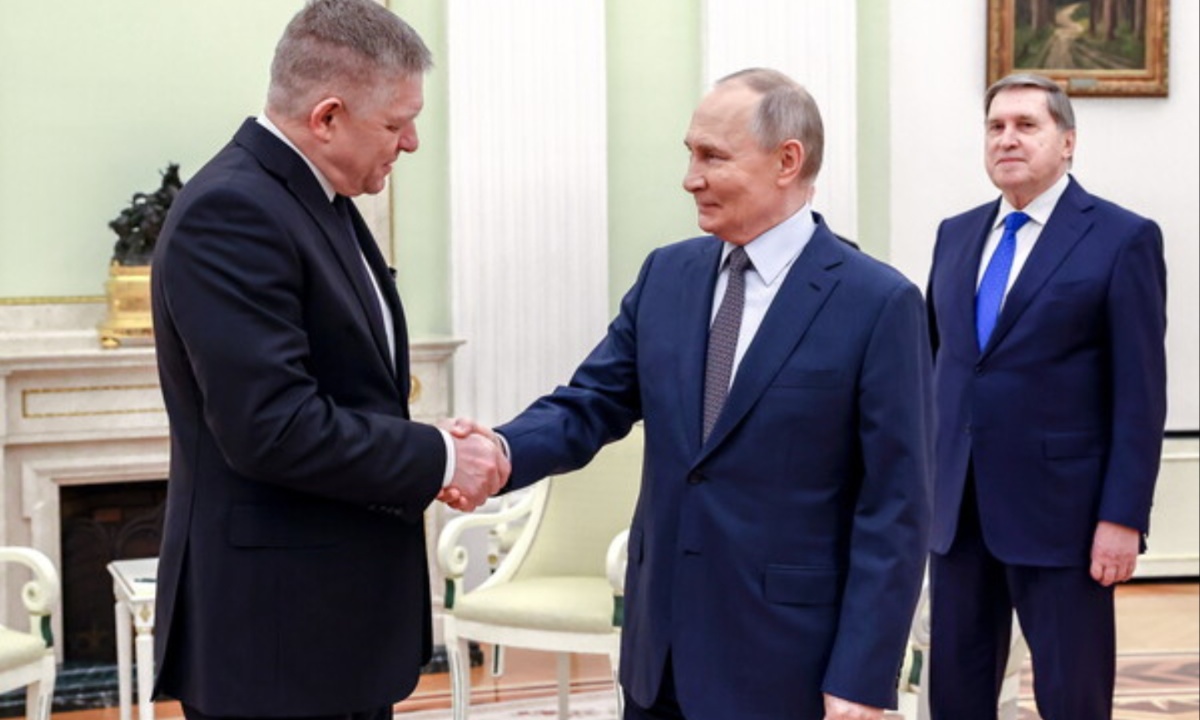Slovak Prime Minister Robert Fico’s recent visit to Moscow for talks with Russian President Vladimir Putin has garnered significant attention. Fico, a staunch critic of the European Union’s support for Ukraine in its war with Russia, became only the third Western leader to meet Putin since the full-scale invasion of Ukraine began three years ago. During the meeting, Fico discussed the vital issue of Russian gas supplies to Slovakia, a country heavily reliant on energy from Russia. A critical gas transit agreement between Russia’s Gazprom and Slovakia, which relies on Ukrainian pipelines, is set to expire at the end of the year, and Ukraine has indicated it will not renew the deal.
Fico’s visit to Moscow marks a deviation from the European Union’s Common Security and Defence Policy, which mandates member states to adhere to the EU’s sanctions against Russia. Since the Russian invasion of Ukraine in February 2022, the EU has imposed multiple rounds of sanctions against Moscow. Fico, however, defended his trip, arguing that Putin has been “wrongly demonized” by the West. He was not alone in breaking ranks, as Hungarian Prime Minister Viktor Orban and Austrian Chancellor Karl Nehammer also visited Moscow in the past, standing in contrast to the EU’s broader policy.

Slovak Prime Minister Sparks Controversy Meeting Putin to Discuss Gas Supplies Amid EU Criticism
The meeting was largely focused on energy concerns, with Fico seeking assurances from Putin about future gas supplies. However, Fico acknowledged that securing continued gas transit through Ukraine might prove impossible due to Ukraine’s refusal to renew the deal. Despite this, Putin expressed his willingness to continue supplying gas to Slovakia. Fico also took the opportunity to discuss the potential for a peaceful resolution to the ongoing war in Ukraine, highlighting his interest in reducing hostilities.
Fico’s visit has sparked a backlash from both domestic opposition parties in Slovakia and neighboring EU and NATO member states. Critics in Slovakia, including figures from the opposition and Progressive Slovakia, condemned the visit as a betrayal of national interests and an alignment with Russian propaganda. Meanwhile, Czech officials expressed dismay, with Foreign Minister Jan Lipavsky emphasizing the importance of energy independence from Russia. The Czech government, having already secured its energy needs, also voiced solidarity with Ukrainians suffering due to the ongoing war.
Fico’s position on the Ukraine conflict has been contentious. Since taking office again in October 2023, he ended Slovakia’s military aid to Ukraine, while maintaining that he wants to be a good neighbor to Kyiv. This complex balancing act, which prioritizes securing energy resources while avoiding outright hostility with Ukraine, has made Fico’s foreign policy stance a subject of intense debate within Slovakia and across the European Union.
